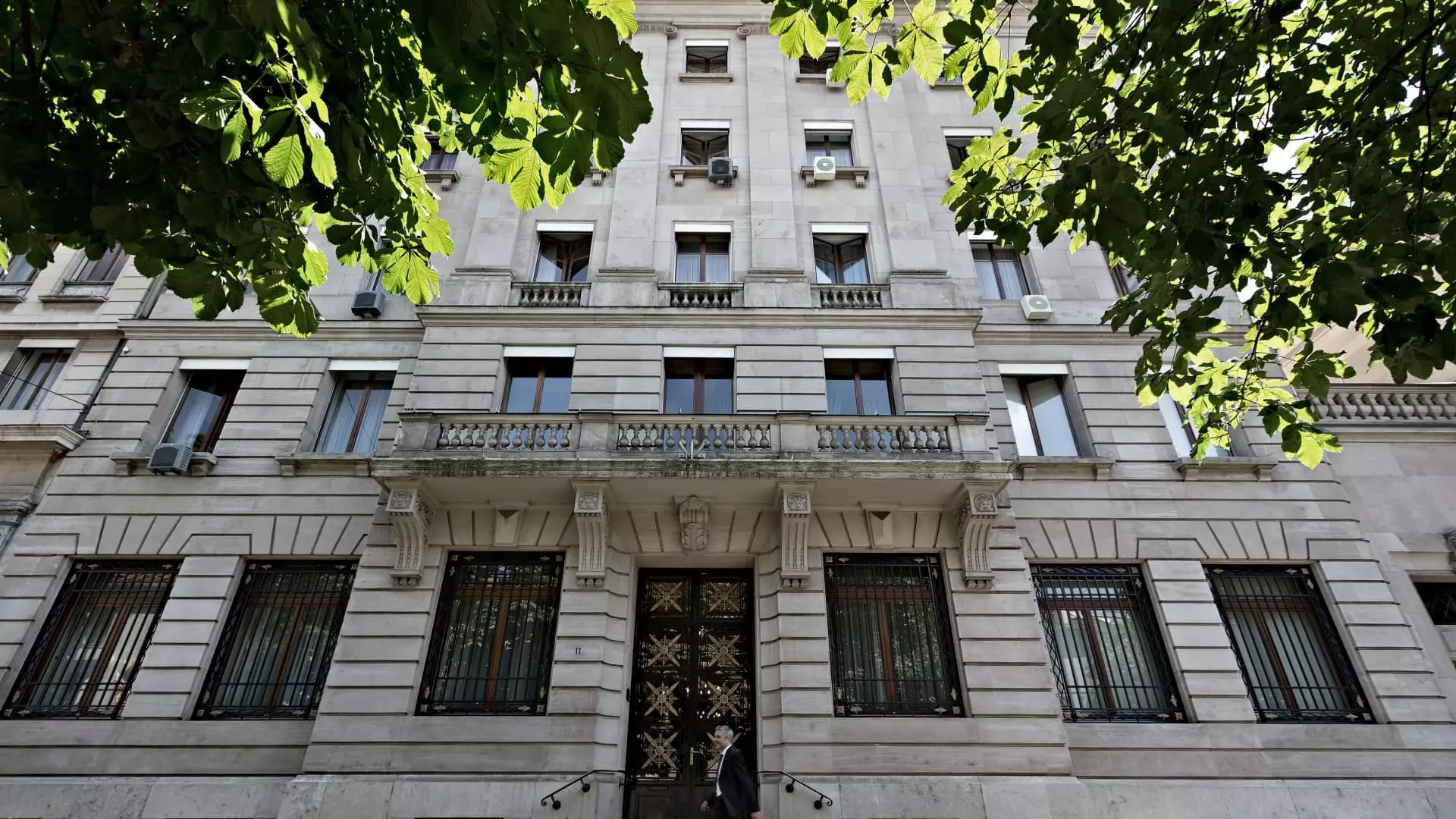Lombard Odier, a venerable institution in the world of Swiss private banking, is now embroiled in serious legal troubles. Recently, Swiss prosecutors have indicted the bank for “aggravated money laundering” as part of an ongoing investigation that stretches back several years. Founded in 1796, Lombard Odier’s reputation for maintaining discretion and providing high-quality financial services is now being challenged, as the bank finds itself accused of facilitating questionable financial transactions linked to an organized crime syndicate.
The Office of the Attorney General of Switzerland (OAG) has officially mandated this indictment, which outlines the involvement of both the bank and a former employee in the concealment of illicit proceeds stemming from the activities of Gulnara Karimova. Karimova, the daughter of Uzbekistan’s late authoritarian president Islam Karimov, is already facing legal troubles of her own, having been indicted for her role in laundering money from 2005 to 2012. The indictments raise profound questions about the accountability of private banks and their operational integrity, especially when serving high-profile clients with dubious backgrounds.
According to the OAG’s statement, the investigations reveal that portions of the laundered funds could have been transferred to Lombard Odier’s branch in Geneva. The bank and its former staff member are alleged to have played a crucial role in obscuring these criminal gains. The disturbing nature of the accusations suggests a systematic failure in the bank’s compliance controls, raising alarms about its internal governance.
For a financial institution that prides itself on maintaining high ethical standards, these allegations could have far-reaching consequences. Industry observers are left to wonder why the bank did not implement more robust measures to vet the sources of its clients’ funds. The specter of prolonged legal battles ahead puts Lombard Odier’s reputation at risk, potentially undermining client trust and investor confidence.
In light of the indictment, Lombard Odier has publicly rejected the allegations as unfounded, indicating that it intends to mount a strong defense. The bank characterized the legal proceedings as a result of “insufficient controls,” suggesting that while they recognize some flaws, they do not acknowledge wrongdoing. It’s also notable that Lombard Odier claims to have alerted Swiss authorities to suspicious activities, presenting itself as a cooperative entity rather than a complicit one.
However, the complexities of the case and its potential ramifications for Lombard Odier could necessitate a reassessment of its compliance protocols. Enhancing transparency and upgrading its risk assessment frameworks will be essential for safeguarding its operations and restoring trust among stakeholders.
This troubling episode is a stark reminder of the delicate line private banks must walk between serving high-net-worth clients and ensuring compliance with international anti-money laundering (AML) practices. While Lombard Odier’s case unfolds, it serves as a wake-up call for the banking sector as a whole. Institutions need to tread carefully and develop rigorous compliance mechanisms to prevent falling into similar traps.
As external scrutiny of financial institutions intensifies amid ongoing regulatory changes, the future will likely require banks to adopt a more proactive approach in managing reputational risks linked to the profiles of their clientele. For Lombard Odier, the coming months will be crucial as they navigate this precarious landscape and endeavor to preserve their esteemed legacy amidst serious legal challenges.

